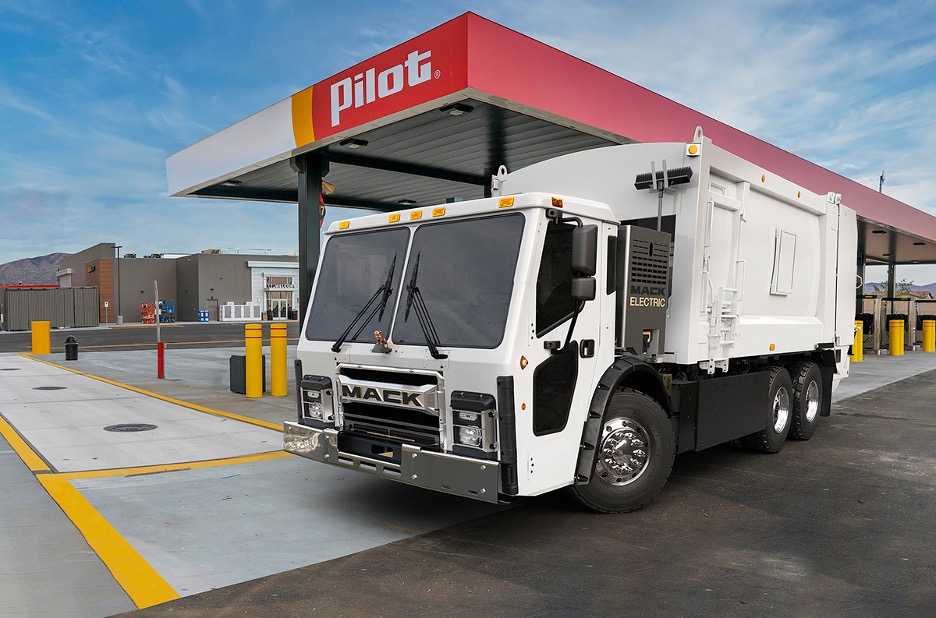Electrification of transport is reaching a new stage at which also long-range electric trucks will join the party at scale. This will require a proper public fast-charging infrastructure along major routes.
Soon, we might see high-power DC fast chargers for medium- and heavy-duty electric vehicles, installed at major travel centers across the US.
A sign of that is the recently announced strategic partnership between Volvo Group and Pilot Company, which operates more than 750 Pilot and Flying J locations across North America (covering 44 US states and six Canadian provinces).
According to a Letter of Intent (LOI) signed by the two partners in November, they will combine their expertise to identify locations to be prioritized for high-performance charging, based on customer and driver needs, current and anticipated battery-electric truck density, and the availability of public funding to support infrastructure costs.
It’s not yet known how many chargers and what type of chargers will be installed – currently, EV trucks are often using the CCS Combo 1 connector, but in the future, they are expected to move to be equipped with the upcoming Megawatt Charging System (MCS).
Shameek Konar, CEO of Pilot Company said:
“Volvo Group’s proven expertise in electric trucks combined with our nationwide travel center network and robust energy platform leverages our respective knowledge and resources to advance the nation’s charging infrastructure. We look forward to working together to develop a holistic solution for electrified fleets, further enabling the transportation industry’s energy transition.”
Volvo Group offers electric trucks in North America through two brands: Volvo Trucks and Mack Trucks. The Volvo VNR Electric model is already available in the second model iteration with an enhanced battery capacity of 565 kilowatt-hour (kWh) and a range of up to 275 miles (442 km).
Meanwhile, Mack produces Class 8 Mack LR Electric refuse trucks with a 376 kWh battery.
Both manufacturers are expected to expand their EV lineup, but they must ensure that fleets that are looking to adopt battery-electric trucks, will have peace of mind in terms of charging infrastructure.


